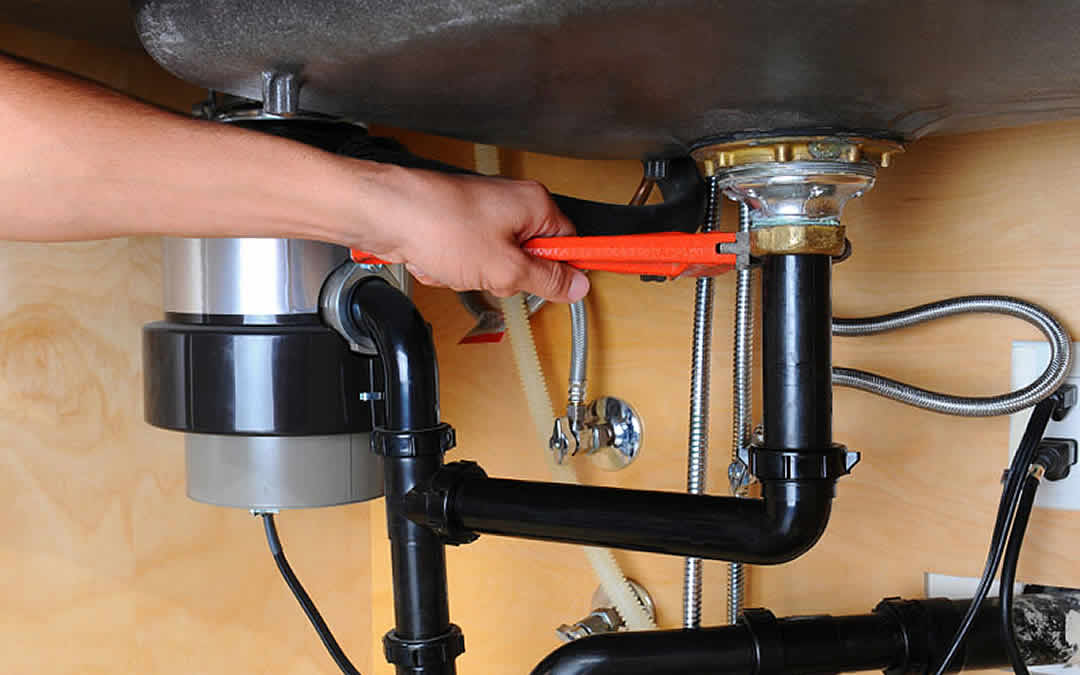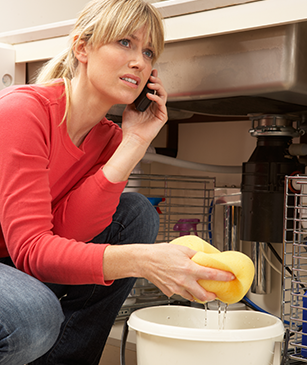Clear Techniques for Repairing a Leaky Garbage Disposal
Call TodayWe have found this great article about The Handy Guide To Fixing Your Garbage Disposal Leaking listed below on the web and think it made sense to discuss it with you on my blog.

Garbage disposals are crucial kitchen devices that assist in dealing with food waste successfully. Nonetheless, a dripping waste disposal unit can be an irritating and messy issue to deal with. Fortunately, lots of leakages can be repaired quickly with a few basic steps. In this post, we will discuss exactly how to fix a dripping waste disposal unit properly.
Introduction
Waste disposal unit are installed under kitchen area sinks and are designed to shred food waste into smaller sized items, permitting it to travel through the pipes system conveniently. While these devices are typically reputable, leaks can happen gradually as a result of wear and tear, loose connections, or damages to the device.
Step-by-Step Overview to Dealing With a Dripping Waste Disposal Unit
Switch off the Power
Before trying any fixings, ensure that the power to the garbage disposal system is switched off to stop the threat of electric shock.
Find the Leak
Identify the precise place of the leak and figure out the cause
Tighten Links
Make use of a wrench to tighten any kind of loose links between the disposal system and the plumbing system.
Change Seals or Gaskets
If the leak is because of used seals or gaskets, remove the old parts and change them with new ones.
Patching Fractures or Holes
For fractures or openings in the disposal device, usage epoxy or an appropriate patching product to secure the broken location.
Identifying the Source of the Leak
Before attempting to take care of a dripping waste disposal unit, it is necessary to determine the source of the leakage. This can usually be done with visual assessment or by carrying out easy tests.
Visual Inspection
Inspect the waste disposal unit device meticulously for any type of indicators of water leakage. Pay attention to locations around seals, gaskets, and link factors.
Examining for Leakages
One method to check for leakages is by running water via the disposal unit and checking for any visible signs of leakage.
Usual Reasons For Leaks in Waste Disposals
Worn Seals and Gaskets
Seals and gaskets play a critical role in avoiding water from leaking out of the waste disposal unit. With time, these parts can deteriorate, resulting in leaks around the disposal unit.
Loose Connections
The connections in between the waste disposal unit and the pipes system can end up being loose in time, causing water to leakage out throughout operation.
Cracks or Openings in the Disposal System
Physical damage to the garbage disposal, such as splits or holes in the real estate, can likewise result in leaks.
Devices and Materials Needed for Dealing With a Leaking Waste Disposal Unit
Before starting the repair work procedure, gather the essential tools and materials, consisting of a screwdriver, adjustable wrench, plumbing professional's putty, replacement seals or gaskets, and epoxy or patching material for fixing splits or holes.
Evaluating the Waste Disposal Unit After Fixing
Once the repair work is total, check the waste disposal unit by running water via it to make certain that the leakage has actually been resolved.
Preventive Maintenance Tips to Avoid Future Leakages
To stop future leakages, it is vital to do routine maintenance on your waste disposal unit. This consists of keeping it tidy, preventing putting non-food products or tough items down the disposal, and regularly checking for leakages or various other concerns.
Final thought
To conclude, fixing a leaking garbage disposal is a relatively straightforward procedure that can be completed with fundamental tools and products. By complying with the steps described in this article and exercising precautionary maintenance, you can maintain your garbage disposal in good working condition and stay clear of expensive repairs in the future.
HERE’S HOW TO FIX YOUR GARBAGE DISPOSAL
WHAT TO DO IF SOMETHING IS STUCK IN YOUR GARBAGE DISPOSAL
If the impeller won’t turn, there’s probably something stuck in the disposal. It could be a steak bone or peach pit, although plumbers report pulling all sorts of inappropriate objects out of disposals, such as bottle caps or aluminum foil. Make sure power to the disposal is off, and look inside to see if you can see the source of the jam.
Never stick your fingers in a disposal. Pull out anything you see with tongs or pliers.
If the disposal still won’t work, it may be time to call a plumber or consider buying a new disposal. GEM Plumbing & Heating is here for all of your garbage disposal needs.
WHAT TO DO IF YOUR GARBAGE DISPOSAL DRAIN IS CLOGGED
Take everything out from underneath your sink and put a bucket or other container under your disposal to catch any water that drains out. Disconnect your disposal from the power supply. If it’s plugged into a wall outlet, unplug it. If it’s hardwired into an electrical box, go to the electrical panel and turn off the breaker for the disposal. Pour ¼ cup of baking soda into the drain, followed by ½ cup of white vinegar. Give the solution a few minutes to fizz and do its work. Look into the disposal with a flashlight to see if you can see an object that might be causing the clog. If you see it, remove it using tongs or pliers. MORE TIPS ON DEALING WITH A CLOGGED GARBAGE DISPOSAL
Never use drain cleaner in a garbage disposal. It can damage the plastic parts inside the disposal. You can also be splashed with the caustic liquid while working to clear the clog. Beware! Never stick your fingers into a garbage disposal. Trust us — not a good idea. In many instances, your dishwasher drains through your garbage disposal. This allows the disposal to grind any large food particles that may be drained out of your dishwasher. There are some jurisdictions, however, where the plumbing code prohibits such a connection. WHAT TO DO WHEN YOUR DISHWASHER DRAINS THROUGH THE DISPOSAL
Run some water in the sink so your plunger has at least a ½-inch of water to create a seal and plunge vigorously up and down several times. You may need to repeat this several times. Run hot water down the drain to clear any residue that remains.

We were shown that write-up about Why Is through a good friend on another web address. Remember to take a moment to promote this blog posting if you enjoyed it. I praise you for your time. Kindly pay a visit to our site back soon.
Contact Us Today